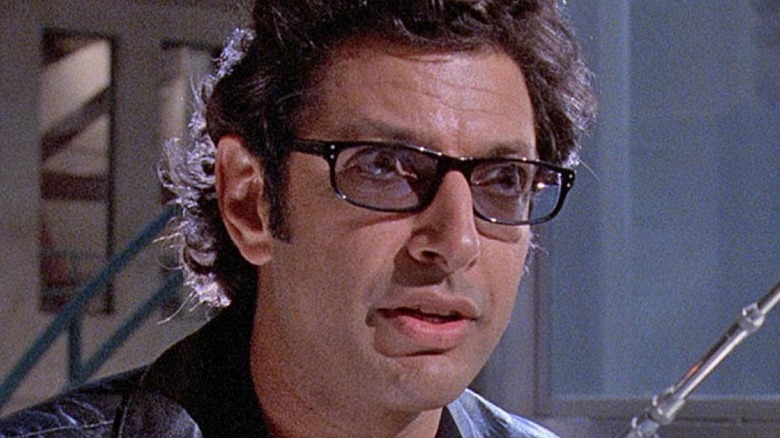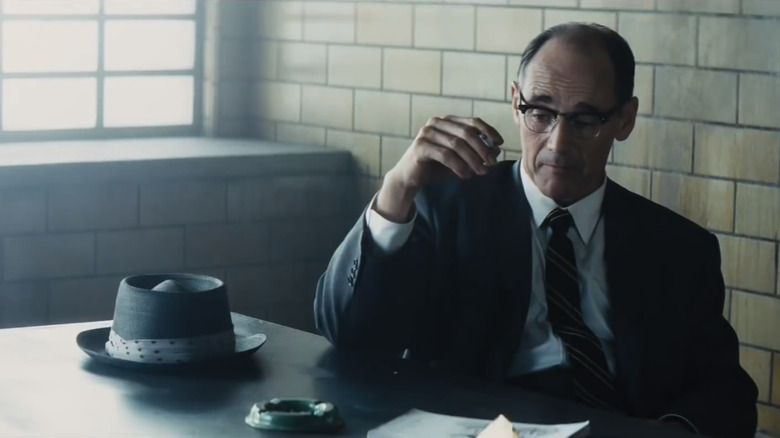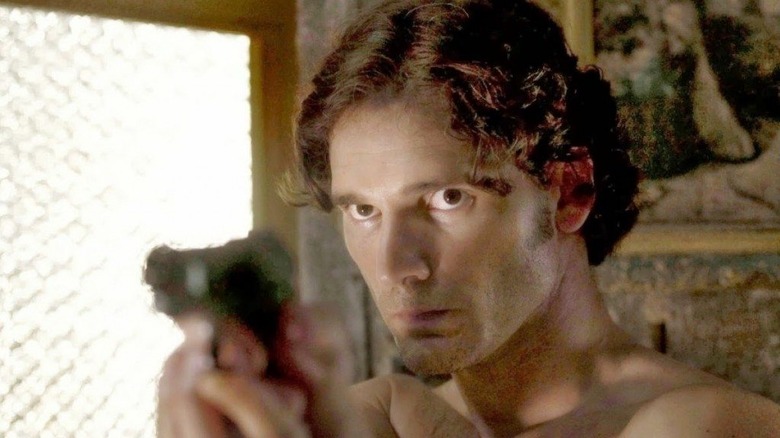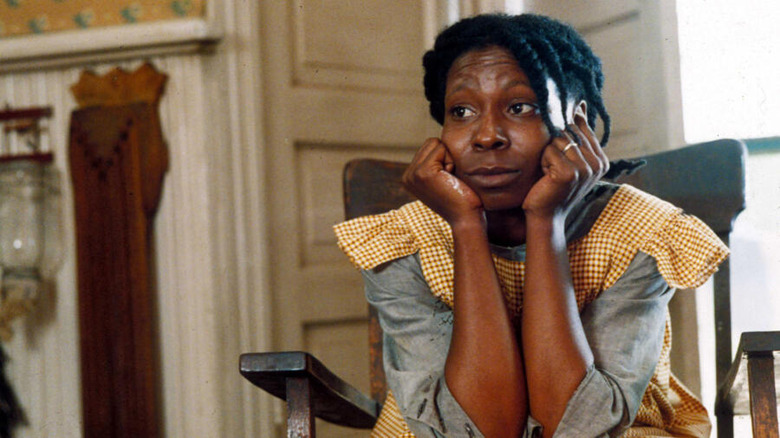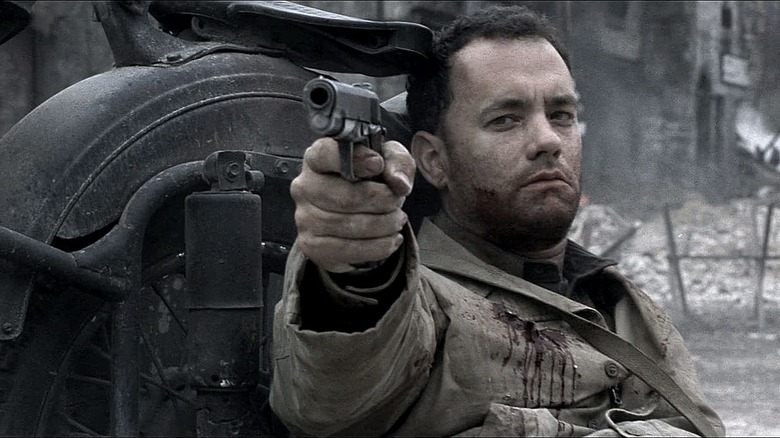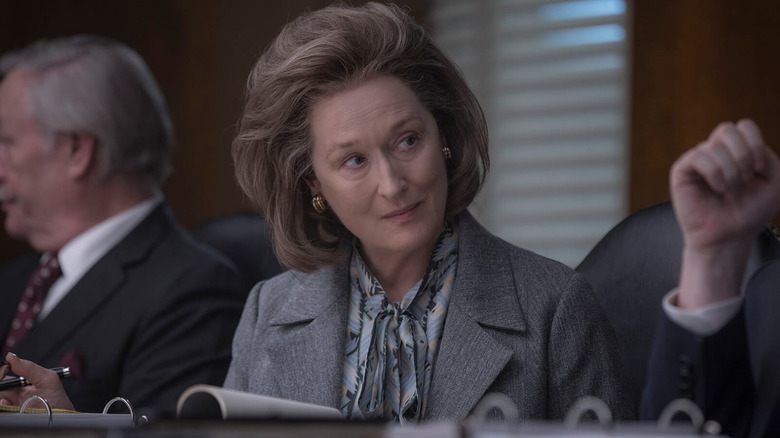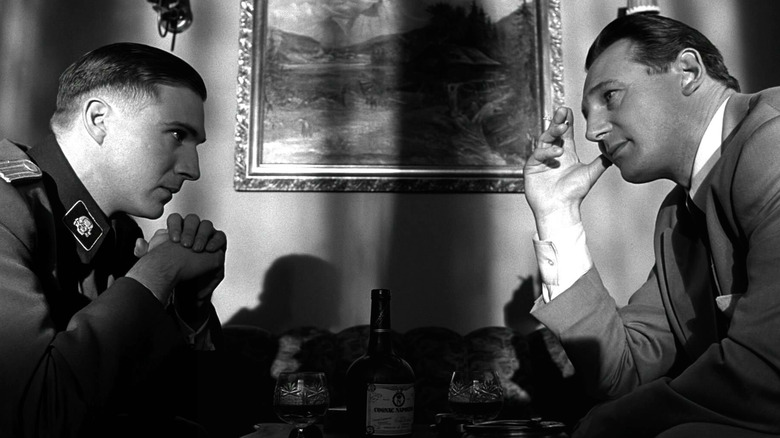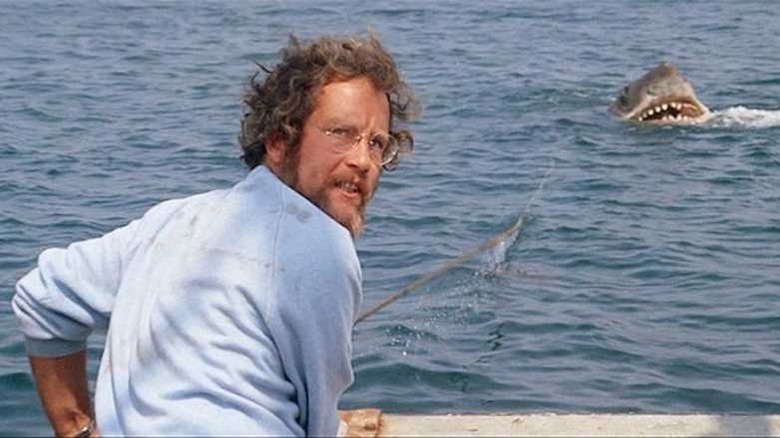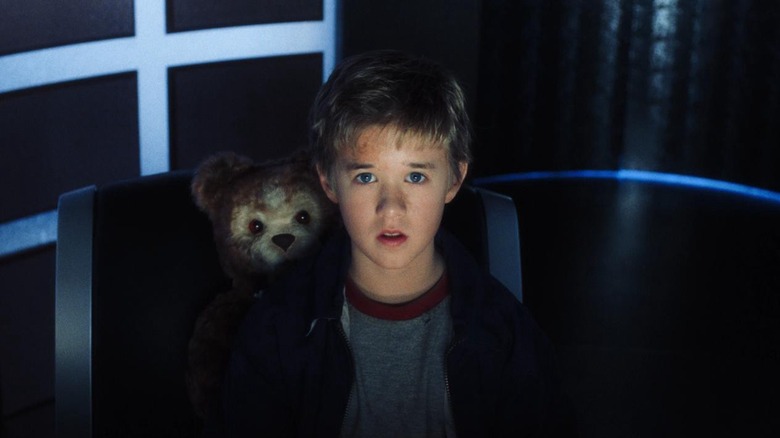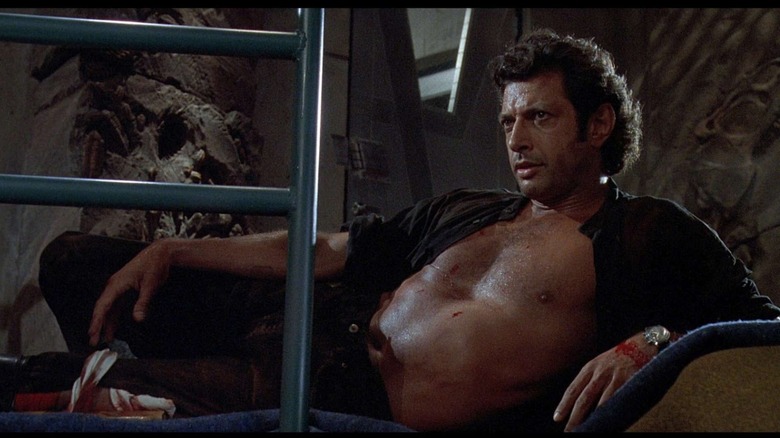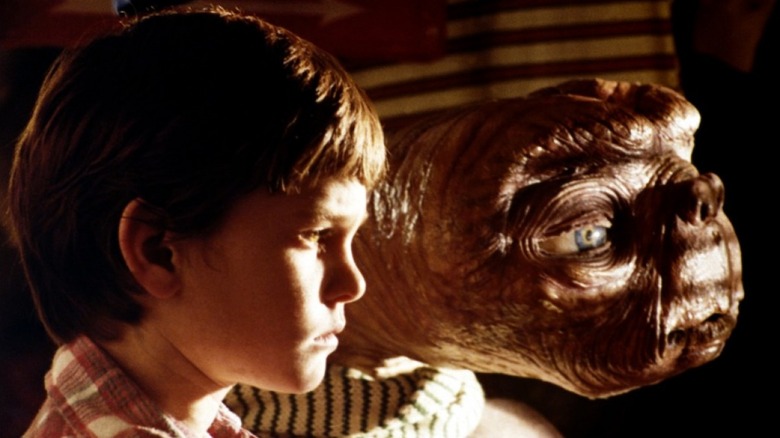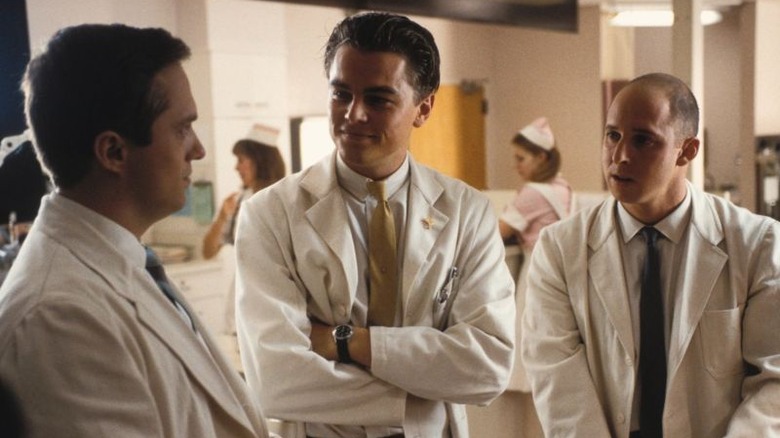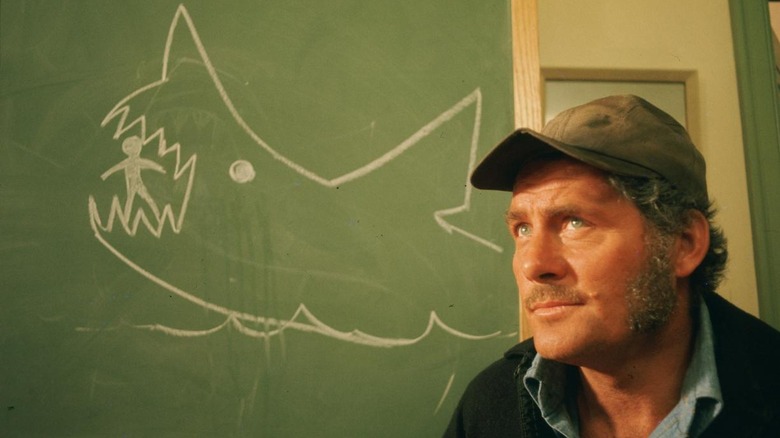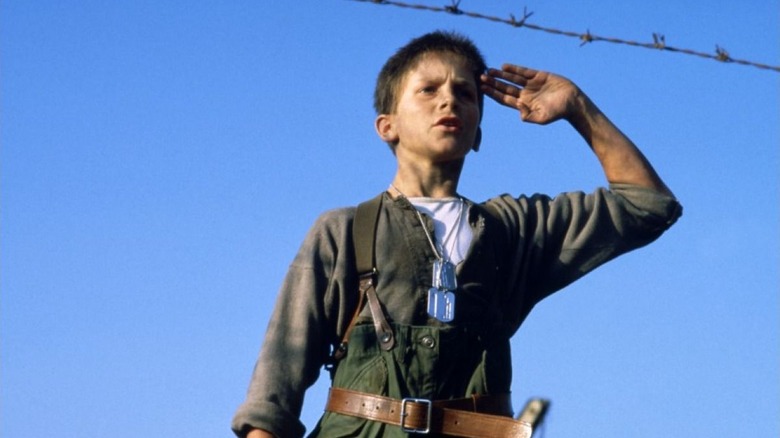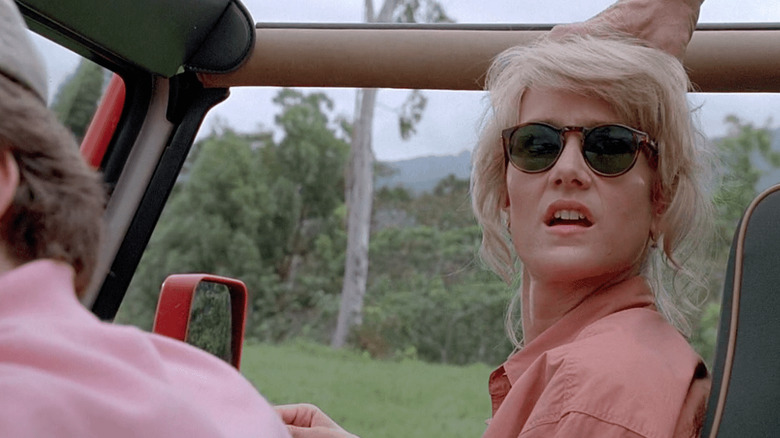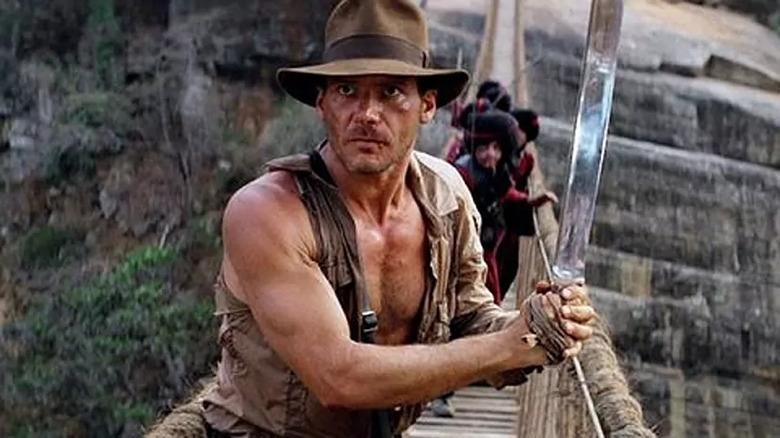The 15 Best Steven Spielberg Protagonists Ranked
Over past 50 years, Steven Spielberg has been one of the prolific and successful directors in Hollywood, with more hits under his belt than almost any other filmmaker. His work, whether historical drama or action adventure, is deeply human, and one of his most unique qualities is how easily he makes audiences fell in love with the universes that he creates. In order to do this, Spielberg needs both characters that spark the imagination, and actors with the charisma and talent to breathe life into them.
Unlike his good friend George Lucas, whose strengths lie in world-building and who would likely be the first to admit his struggles working with actors, Spielberg has a proven track record of bringing out the best in the actors he works with, especially children. These qualities make for an impressive roster of on-screen protagonists, without which his films would undoubtedly be much less emotionally resonant. Here are the best.
15. Rudolf Abel — Bridge of Spies
There are some who would accuse "Bridge of Spies" of being dull. They would be mistaking quiet and understated for boring, and nowhere is that more obvious than in Mark Rylance's Oscar-winning performance as Rudolf Abel. A Soviet spy being held in American custody, Abel is used as a bargaining chip to trade for an American pilot captured after flying a reconnaissance mission in Russian airspace.
As much as people like to envision spies as something along the lines of James Bond, Abel is a far more realistic portrait of an intelligence agent. He flies under the radar, is quietly good-natured, and is entirely unflappable. His conversations with lawyer James Donovan (Tom Hanks) produce layers upon layers of meaning, giving the audience evidence of a rich inner life, even if he remains subdued and seemingly unexciting on the surface. It's a testament to Rylance's skill as an actor that he pulls so much complexity out of such a restrained character.
14. Avner Kaufman — Munich
"Munich" is one of Spielberg's more contemplative pieces, so it makes sense that its protagonist, Avner Kaufman (Eric Bana), would be one of his most intriguing and multi-faceted characters.
In the aftermath of the Munich Olympics Massacre in 1972, when the Palestinian terrorist group Black September captured and murdered eleven members of the Israeli Olympic team and one West German police officer, the Israeli authorities were keen on retaliation. So, Mossad agent Avner Kaufman is chosen to lead a mission (codenamed Operation Act of God, if that gives you an idea of how seriously they were taking this) to quietly and efficiently assassinate the perpetrators. Bana does an incredible job portraying Kaufman as he struggles with the morally dubious nature of this assignment, as well as his growing disillusionment with the Israeli secret service and the paranoia grows as Kaufman begins to suspect that he and his family are being watched.
13. Celie Harris — The Color Purple
Up until "The Color Purple," Spielberg had been mostly known for big blockbusters. So, his transition to a historical drama about a young Black woman navigating the trials and tribulations of life in the south was, shall we say, a significant departure. Luckily, Spielberg couldn't have picked a better protagonist than Celie Harris, played by Whoopi Goldberg in a performance that would earn her an Academy Award nomination for best actress.
For Goldberg, this was also a major change of pace; before being cast in "The Color Purple," she was predominantly seen as a stand-up comedian, with only one other film under her belt. Through relationships, both romantic and platonic, that Celie has with other Black women, she begins to see herself as someone worthy of respect and love, overcoming years of abuse from both her father and her husband. Although some critics questioned Spielberg's trademark sentimentality and whether it was appropriate for a white man to tell this story, "The Color Purple" remains an emotionally effecting movie, largely in part to Whoopi Goldberg's performance as Celie.
12. John Miller — Saving Private Ryan
When you think of a World War II captain leading his men valiantly into battle, you probably envision a strong, hypermasculine figure, one who is undoubtedly as dominant and commanding in real life as he is in combat. "Saving Private Ryan" may be a traditional war film in many respects, but it subverts expectations in the form of Captain John Miller, played by Tom Hanks. Miller is capable, calm under pressure, and even taciturn, and his men respect him. He is every inch the prototypical war hero; you could make wartime propaganda posters featuring this guy.
But when he's not marching through occupied France on the hunt for the remaining Ryan brother, Miller is shockingly ordinary — he's just a high school English teacher. By separating the soldier from the stereotype, Spielberg skillfully drives home the message that the men who fought in World War II were not superpowered fighting machines, but ordinary people asked to serve in extraordinary situations. By having his gruff, unsentimental war hero be an English teacher, someone who is trained to find beauty in words, Spielberg shows how it is impossible not to be changed by combat.
11. Kay Graham — The Post
"The Post" perhaps isn't one of Spielberg's most popular films (despite the fact that it was nominated for best picture and best actress at the Academy Awards), but Kay Graham is an undeniably fascinating figure, especially from a feminist perspective. Played by Meryl Streep, she is the owner of the Washington Post in the midst of the Vietnam War, and therefore wields tremendous power in the world of journalism.
But although Graham has control of the paper, it doesn't feel as though it's truly hers; the Washington Post was in the hands of her father first, and then her late husband, and she finds it difficult to escape the feeling that she is merely a figurehead. "The Post" is primarily focused on the leaking of the Pentagon Papers, documents that showed high-ranking military leaders privately knew the war in Vietnam was doomed, yet still poured American troops into the country. But it's also about the evolution of Kay Graham as a woman and as a leader who discovers hidden reserves of strength and the knowledge that she deserves to be heard.
10. Oskar Schindler — Schindler's List
It's hard to find heroes in a film entirely about Nazis, but Oskar Schindler (played by Liam Neeson, with a performance that would see him nominated for an Academy Award) stands as a notable exception. A high-powered industrialist, Schindler is moved by the plight of Polish Jews during World War II, and manages to pull some strings so that he can employ them at his own factories, thus protecting them from the worst of the Holocaust. In doing so, he saved over a thousand Polish-Jewish refugees.
But the most interesting element of "Schindler's List" is that it downplays the nobility of Schindler's actions. Indeed, Schindler operates in what could be considered a moral gray area — he saves lives when he can, but he also maintains friendly relations with Nazis in his social life. That is, in part, is why the end of the film, when Schindler reckons with the full extent of the Jews' loss, is so powerful. How many more people could he have saved, he bemoans, if he had been willing to sell his car, or his watch, or any of his other possessions, so that he could have had more money for his payroll? It's this grappling with his conscience that makes Oskar Schindler such a deeply compelling figure.
9. Hooper — Jaws
Of the three leads in "Jaws," Hooper is perhaps the least remarkable. Brody is the traditional hero. Quint is the mysterious one. Hooper is there to give us exposition about the shark. But in the hands of Richard Dreyfuss, he's also more than that. A whirling dervish of energy, Hooper operates as the voice of the audience, saying to the good people of Amity, "Are you crazy? Close the beaches already!"
Hooper's acerbic, modern sense of humor makes him the perfect foil to the town mayor, whose grinning, ah-shucks demeanor feels straight out of the '50s. Hooper is the one who injects some levity into the situation with his presence, which hammers home the seriousness of the situation when he starts to act a tad graver. In any thriller where there's a freak phenomenon occurring, you need a character who's been given the thankless task of explaining to the audience what's going on. But rarely has the info dump been done with such much style as it was by Hooper in "Jaws."
8. David — AI: Artificial Intelligence
One of Spielberg's most underrated talents is his ability to work with children. That is never more evident than in "AI: Artificial Intelligence," which has a young, unbelievably precocious Haley Joel Osment in the lead role of David, a robotic child. Osment's mettle had already been tested at this point, having famously starred in M. Night Shyamalan's "The Sixth Sense," but while he was able to play a somewhat ordinary (albeit strange) boy in Shyamalan's ghost story, here he is tasked with playing a character that isn't even human.
David is an android adopted by a human family whose biological son has been in a coma for ages, and he combines a childlike innocence and natural curiosity with an ever-so-subtle flatness. He's a futuristic Pinocchio who is close to being a real boy, but not quite there. This would be a tough ask for an adult actor, let alone a child, but Osment somehow brings David to life, making the audience ache as he is cast aside and forced to make a life for himself outside the family unit he has been programmed to serve.
7. Ian Malcolm — Jurassic Park
Ian Malcolm, chaos theory mathematician. Love him or hate him, his brash, irreverent style — and constant flirting with Dr. Sattler! — undeniably made a massive impact on "Jurassic Park." While everyone else is goggling at the dinosaurs, Jeff Goldblum's Malcolm is considerably less impressed, never allowing genuine awe get in the way of a snide comment or sarcastic quip.
Goldblum's line delivery is a huge part of what makes the character so memorable, with inflections that take made dialogue into the stuff of graphic tees and internet memes. "Life, uh, finds a way," is just one of his classics, and it speaks to how popular Ian Malcolm is that when it was time to make a sequel, they chose to focus on him, not the arguably more significant characters of doctors Sattler and Grant (similarly, Malcolm was also the first of the original trio to return for the revamped Jurassic World series).
6. Elliot — E.T. the Extraterrestrial
When you watch "E.T. the Extraterrestrial," there are many standout characters. E.T. himself is a marvel of practical effects, giving the alien so much personality and heart. A pint-sized Drew Barrymore made a name for herself as the youngest child of the family, who discovers E.T., and won audiences' affection with her sweet playfulness on camera.
But none of the film works at all without Elliot, our protagonist, played by Henry Thomas. He is the one who establishes a fierce and unbreakable bond with E.T., and who will fight until his last breath to protect the alien from nefarious government forces. If you've seen Henry Thomas's audition tape (and if you haven't, please stop reading this right now and go watch it), you'll see how the young actor immediately understood the character; his plaintive cries when E.T. is in danger of being taken away from him are utterly soul-shattering.
5. Frank Abagnale Jr. — Catch Me If You Can
Leonardo DiCaprio can do dark and gloomy with the best of them, but his most engaging performances come when he's allowed to have a little bit of fun. That's what "Catch Me If You Can" offers: a stylish period romp based on the incredible true story of Frank Abagnale Jr., a conman who outsmarted just about everyone he met from the age of 15 onwards.
Watching DiCaprio in this role is an utter delight, as he manages to stay several steps ahead of the law enforcement officials hunting him, always thinks on his feet, and contains an unparalleled boldness that gets him out of the direst scrapes just by virtue of being willing to try something that no one else ever had. He poses as a substitute teacher, a lawyer, a doctor, and an airline pilot, all because he is able to will these identities out of thin air.
4. Quint — Jaws
Is there a single greater introduction to a character than Quint's in "Jaws?" He announces his presence to a group of bickering Amity stakeholders by dragging his fingernails across a chalkboard, and he's impossible to take your eyes off of from there on out.
Quint, played by Robert Shaw, is a renegade. He's a gruff sailor who has no time for social niceties. But you know what he can do? He can catch that shark. A man of mystery, Quint is slow to open up, even as the burgeoning friendship between him, Hooper, and Brody grows. But then, finally, Brody gets to deliver his monologue, telling his companions about the USS Indianapolis, which sank during World War II and attracted hundreds of sharks. First, they took out the dead and the dying. Then, they began to turn their attention to the survivors floating helplessly in the open water. Quint's traumatic experience with the Indianapolis throws his character into sharp relief, and gives him a gravitas that belies his gruff and brutish exterior.
3. Jim — Empire of the Sun
Let's not beat around the bush here: Jim in "Empire of the Sun" is a great character in large part due to the fact that a young Christian Bale puts in what may be the best performance from a child actor ever. Growing up as a rich, privileged son of English citizens in 1930s China, Jamie's life is turned upside down when the Japanese invade, suddenly separating him from his parents.
Jamie spends the next few years coming of age in an internment camp. Bale is not only tasked with playing a suffering yet curious and empathetic child, but also aging from 11 to 15 years old. Indeed, by the end of the film, when Jamie is reunited with his mother, he barely reacts to seeing her; Jim's eyes alone show the trauma and loss of innocence the child undergoes in "Empire of the Sun."
2. Ellie Sattler — Jurassic Park
"Jurassic Park" has a tremendous ensemble cast made up of group of scientists and other individuals who comprise the theme park's very first visitor trial. But without question, the emotional heart of the film is Dr. Ellie Sattler, played by Laura Dern. A paleobotanist, Sattler is completely overwhelmed by the magic and the joy that the dinosaurs of Jurassic Park have to offer. Perhaps the most striking aspect of her character, however, is that Spielberg cast her as a scientist in the first place.
It would have been all too easy for "Jurassic Park" to make Sattler nothing more than Alan's wife or girlfriend, someone who's just along for the ride. Instead, Ellie is defined by both her intellectual curiosity and the empathetic reverence she has for the dinosaurs. When she stays behind to tend to a sickly triceratops, it becomes clear what a uniquely caring individual Ellie is; for many of us, that's when Dr. Ellie Sattler won us over completely.
1. Indiana Jones — The Indiana Jones franchise
Is this predictable? Yeah, probably. But is it absolutely, 100% the correct answer? Of course. There's a reason why Indiana Jones is one of the most iconic characters in cinematic history, and it's not just the whip and the fedora (okay, part of it is definitely the whip and the fedora). Most of it comes down to Harrison Ford's pitch-perfect performance as the famed archaeology professor-slash-treasure hunter. Imbuing his character with all the charm and bravado of a classic adventure star from '30s movie serials, Ford's presence makes these films the entertaining spectacles that they are.
Although Indiana Jones grows into a more fully-developed character over the course of the first three films, there's one moment fairly early on in "Raiders of the Lost Ark" in which it's immediately evident that this character will become a legend. Indy is in a standoff with an adversary armed with a sword, who prepares for battle by swinging it around aggressively. After the impressive display, Indy simply shoots him. Truly the stuff of kings.
